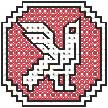 Assisi work is a kind of hand embroidery that originated in Medieval Italy. The technique produces a colored background where the motif in the design is void – that is, left blank. So you get the color background, and the design stands out because it is not colored.
Assisi work is a kind of hand embroidery that originated in Medieval Italy. The technique produces a colored background where the motif in the design is void – that is, left blank. So you get the color background, and the design stands out because it is not colored.
Assisi work was popular as an ecclesiastical embroidery technique, where rich designs would be worked for altar frontals, vestments, and other church uses. The name originates from the town of Assisi, where this technique was often worked in convents responsible for providing church textiles.
In Assisi work today, the design is worked on an even weave fabric, and the motif is usually outlined in Holbein stitch or “running backstitch” – or simply in backstitch, according to some sources. The appeal of Assisi work is the boldness of the designs – no wimpy colors here! Rich colors of reds, blues, greens, browns, etc., will make up the background, while the “picture” is white.
Usually, the background was stitched in long-arm cross stitch or in a variation of Algerian Eye stitch, but modern embroiderers often substitute regular cross stitch, sometimes over two or even three threads of the fabric. They also will employ a variety of colors in their motifs, adapting the “voided” idea of the central picture to a more modern view of utilizing color. In any case, whether old or new, examples of Assisi work are attractive and captivating.
There’s also a great website out of the Netherlands devoted to Assisi work, where you will find hundreds of free patterns – and they are marvelous patterns! The website is called Embroidery and Embroider, created by Jos Hendriks. You’ll not only find wonderful patterns, but you’ll also find plenty of photographs of finished work. It’s really a fun site to peruse.
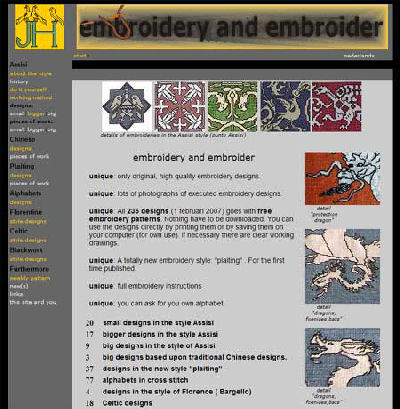
I especially like the easily printed patterns all over the site! There are some marvelous examples of truly medieval-style Assisi work, as well as work that can be adapted to a more modern approach. You’ll find directions on Assisi work as well.
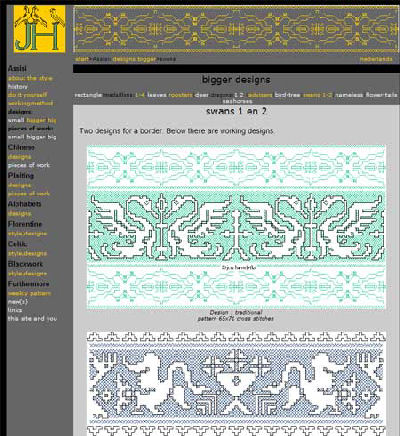
I like the look of Assisi work, and it’s great for “small projects” as well as large. For example, an Assisi work bookmark takes only a little time to create, and yet would make a very thoughtful gift for a reader in your life! This style of embroidery is very suitable for household upholstery items, such as decorative pillows, etc. I can also see Assisi work well used on the cute and sturdy tote-bags that are so popular today. So many possibilities!
I’ll be adding Embroidery and Embroider to my list of free embroidery patterns online – if you’re looking for more embroidery patterns around the web, check out the list! It keeps growing!

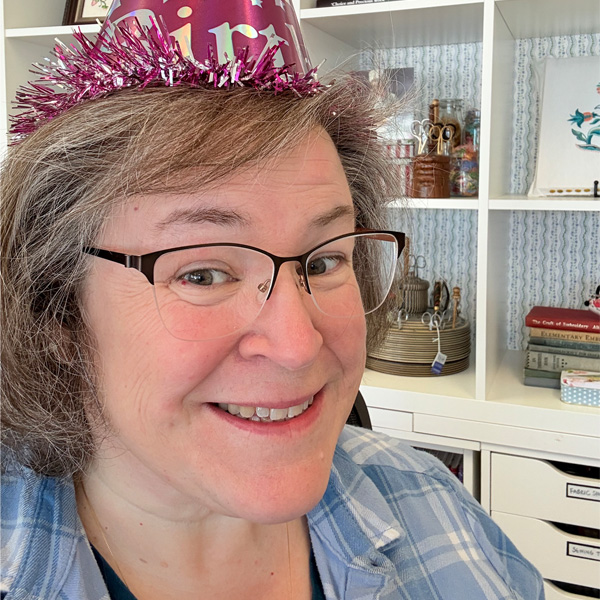
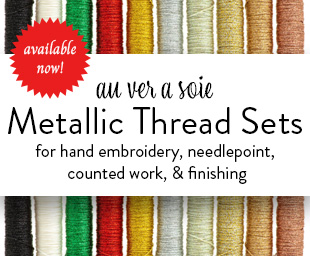

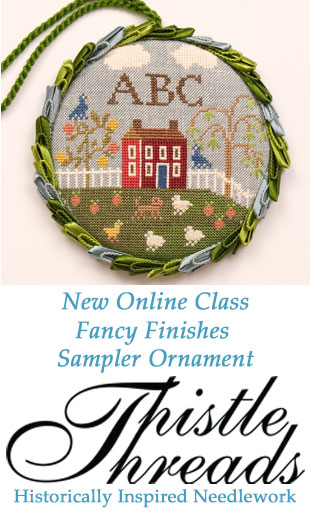
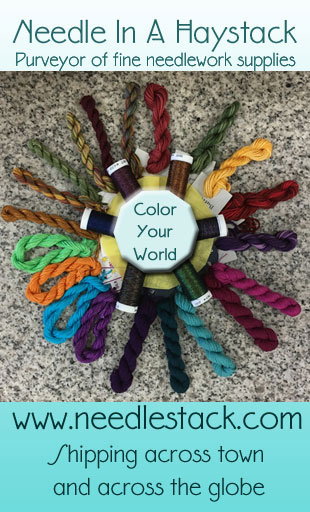
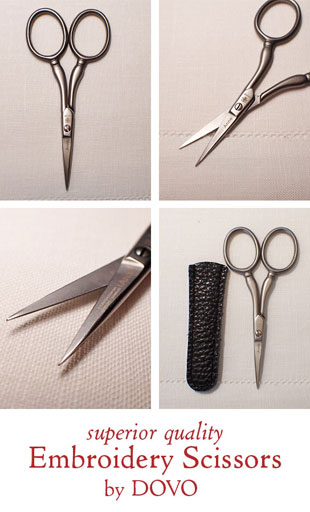
bonsoir
merci pour toutes ces jolies broderies
je suis tres tres admirative
I am planning to make a Assisi embroidered tablecloth. I am using a pattern from the DMC Embroideries book, specifically, Plate XV. I would like to solicit your advice. If I use a 14st/in linen instead to the 14st/cm (which translates to about 35st/in)that is recommend and stitch over 1 thread instead of the 3 called for in the book, would the outcome be significantly compromised. Thanks you
Hi, Cindy – well, I don’t think the stitching will be too different, if the book calls for stitching over three threads. It’ll be slightly different, but not that much. You’ll have to adjust the size of the finished tablecloth a little bit, or the placement and number of the repeats, I’d imagine. You’ll have to calculate that part out…
But the fabric you’re talking about – 14 threads per inch – is going to look significantly different as a table cloth. It’s also going to wear differently, wash differently, and so forth. I’m making an assumption here, because I’m not aware of any 14 count linen (aside from stiff linen canvas), so I’m assuming you’re planning to use a cotton. Linen is one of those fabrics that actually improves over time and with correct laundering, ironing, and so forth. Cotton doesn’t. My advice, if you’re planning to put a lot of time into a large tablecloth, is to go for the higher count fabric in linen. It will look better on the table and it will last longer. It’s more expensive initially, but the outcome will be better, and given the amount of time that you will undoubtedly put into the project, the cost of the linen is really negligible.
Just my thoughts…
Some years ago I saw a pattern in traditional blue Assissi stitch depicting St Francis with the animals. Have been unable to locate pattern or even the embroidery kit.Do you have such a pattern
Hi,Moira – no, I don’t have a pattern. I’ve seen a cross stitch pattern for St. Francis of Assissi, but not one in Assissi work.
Good morning. I am looking for a pattern for Assisi embroidery work for a teatray. Is it possible for you to help me. Thank you
Hi, Annemarie – There’s a book by Jos Hendricks that has a heap of Assisi embroidery patterns in it, that you can use as is or even alter and reconstruct into more elaborate (or less elaborate) designs. I’ve got it at the top of my Amazon Recommendations page here, if you want to check it out.
Thanks so much! Very informative
I just found out about this type of stitchery.
I can’t wait to start this new project.
Hi
The Country Woman’s Association of NSW has a project for next year that is Assisi embroidery and I am looking for patterns
Could you please advise where I can obtain some patterns
Thanks in advance
Barb